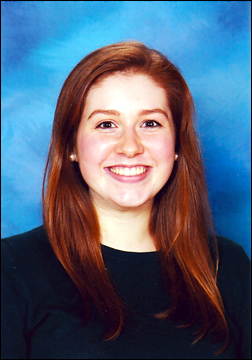
By Kerry Baumann Student, Douglas S. Freeman High School
Recently, Glen Allen High School in Henrico County showed a video to its students at an assembly as part of Black History Month. It sparked backlash from many parents and students.
The video is entitled “Structural Discrimination: The Unequal Opportunity Race,” and it uses the metaphor of a rigged track competition to depict the various forms of institutionalized racism that impact African-Americans every day. Because of the widespread controversy over this incident, the Henrico County School Board issued an apology, which in turn caused even more outrage from proponents of the video’s message.
Regardless of your opinion on this particular matter, we cannot pretend that race-related issues are not prevalent in Henrico County Public Schools. Further, they have historical, political, sociological, and economic relevance. The question is, will our schools not only permit but teach students to engage in constructive debate on important topics about which they may disagree – or will they turn away, leaving students to model their own discourse after the collective shouting now seen in social and traditional media?
I should point out that I attend Freeman High School, where, despite having an exceptionally diverse student body, we remain the “Home of the Rebels.” Yes, we have stopped using a Confederate soldier as our mascot, but the issue continues to be debated between students, faculty, parents, and alumni.
Also in the news recently are Mills E. Godwin High School Harry F. Byrd Middle School, both of which are named after pro-segregation politicians and advocates of the “massive resistance” movement in Virginia during the late 1950s and early 1960s. The Henrico School Board recently voted to change the name of Byrd Middle, but hasn’t yet said what the new name will be.
Last year, 60 years after Brown v. Board of Education, UCLA conducted a national study in which Henrico County was singled out for its racial segregation. Clearly, race issues persist and in no way are they yesterday’s news.
As a high school student, I know that race relations is an important topic for many young people. Students talk about it among themselves quite often, actually, whether we realize it or not. We notice unequal treatment in disciplinary practices. We see the differences between one end of the county and the other, or between Henrico County and Richmond City. Our social media feeds serve as evidence that we share opinions on race relations at a broader, national level, whether it be about educational disparities, socioeconomic conditions, police misconduct, or high levels of incarceration.
If the purpose of public schools is to educate young people, then I think young people would agree that school needs to be a forum for conversation about these kinds of issues.
Think about it: at most, students receive maybe a year or two of government/civics class. Even with that requirement, there is very little opportunity to engage in more controversial debates and discussions. Once we graduate, we students are off into the real world--we move away, we go to college, we find jobs, and we vote. We need to ensure that our school systems are effective in preparing us for our lives as engaged citizens and future leaders.

